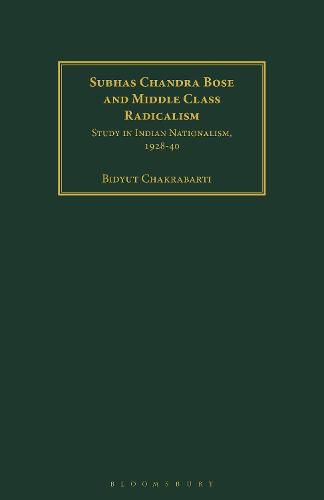Subhas Chandra Bose and Middle Class Radicalism: Study in Indian Nationalism, 1928-40
Bidyut Chakrabarti (Visva-Bharati, India)

Subhas Chandra Bose and Middle Class Radicalism: Study in Indian Nationalism, 1928-40
Bidyut Chakrabarti (Visva-Bharati, India)
Subhas Chandra Bose is notorious in Britain - and famous in India - because he led the Indian National Army, which was armed by the Japanese to fight against the British in World War II. As a result, Indian studies of his part in the independence movement have tended to be hagiographic. This book takes a critical look at Bose’s political role before the INA episode, when in the 1920s and 1930s he represented radical and militant nationalism with the young Jawaharlal Nehru.
Subhas Chandra Bose was a prominent Bengali political leader. Twice president of the Indian National Congress, on the second occasion he was elected in preference to Gandhi’s own nominee. He successfully challenged Gandhi’s leadership at both the central and regional level. He provided a broad platform for all those who opposed Gandhi and Gandhism. In Bengal he succeeded for a time in securing an alliance between the communists and the Islamic Krishak Praja Party (KPP). Though Bengal itself was at the heart of the struggle within the nationalist movement between Gandhians and socialists, until now, no detailed study has been made of political developments there.
In this book the author examines the importance of Bose’s militancy in the nationalist movement, how middle class radicalism developed in Bengal, and why in the end its inherent contradictions doomed it to failure.
This item is not currently in-stock. It can be ordered online and is expected to ship in approx 2 weeks
Our stock data is updated periodically, and availability may change throughout the day for in-demand items. Please call the relevant shop for the most current stock information. Prices are subject to change without notice.
Sign in or become a Readings Member to add this title to a wishlist.

